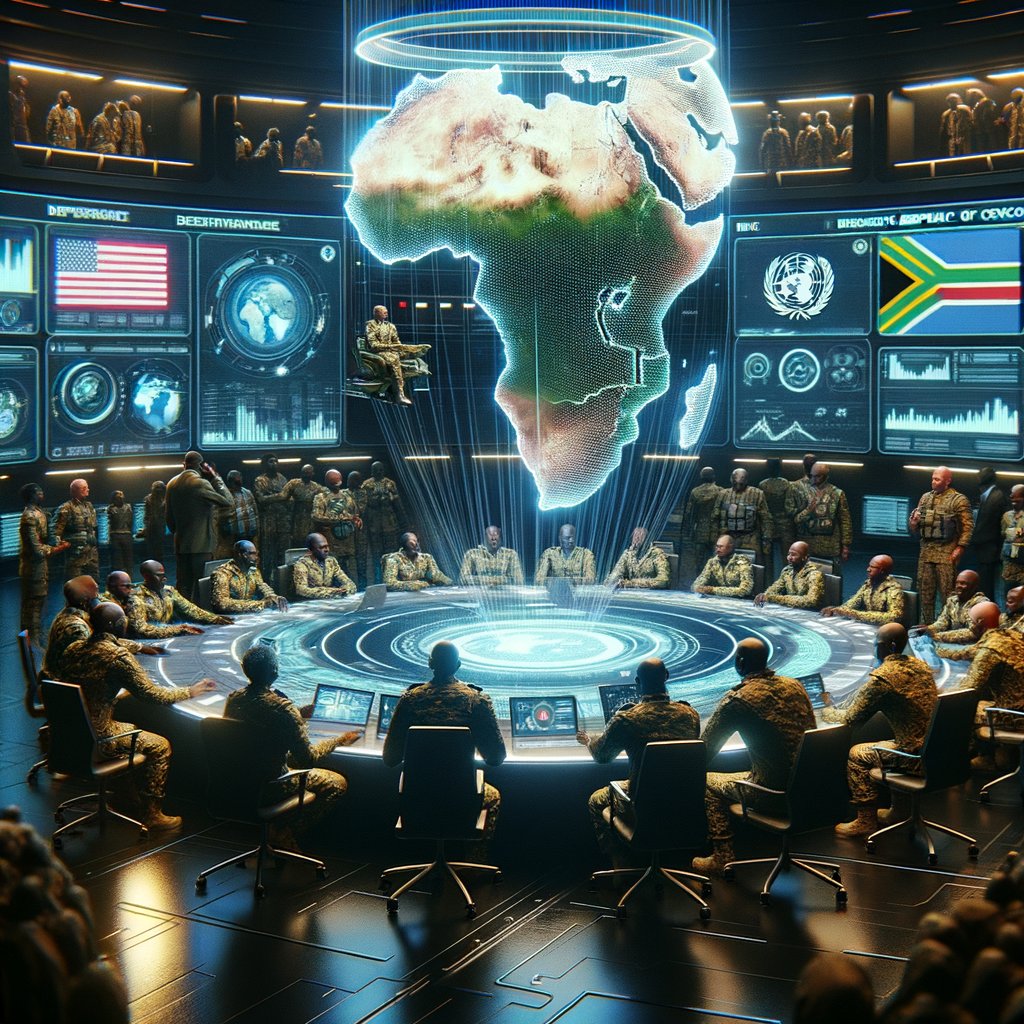Image created by AI
South Africa's Dilemma in DRC: Withdraw Troops or Continue the Fight?
The South African government faces tough scrutiny as political parties and the public demand the immediate withdrawal of South African forces from the embattled regions of the Democratic Republic of Congo (DRC). Recent debates have highlighted both the perilous situation of approximately 2,000 South African National Defence Force (SANDF) troops trapped around Goma and the broader implications of their continued presence in the region.
During a parliamentary debate initiated by the Democratic Alliance (DA), voices across the spectrum, including the Economic Freedom Fighters (EFF) and United Democratic Movement (UDM), criticized the government’s foreign military engagements. The predominant concern revolves around the recent casualties South Africa has suffered, notably the death of 14 SANDF soldiers last month in conflicts against M23 rebels — a group allegedly backed by Rwanda.
Defence spokesperson Chris Hattingh of the DA articulated the opposition’s perspective by challenging the government's portrayal of the mission as a peacekeeping operation. He argued that the troops were inadequately equipped and supported for such a dangerous deployment. Most of the deceased soldiers were part of the Southern African Development Community Mission to the DRC (SAMIDRC) or attached to the UN peacekeeping mission MONUSCO.
However, the government, represented by Defence Minister Angie Motshekga and International Relations Minister Ronald Lamola, maintains a different view. Motshekga emphasizes that South Africa’s involvement in the DRC since 1997 underpins a long-standing commitment to fostering stability in Africa — a policy initiated during the presidency of Nelson Mandela. Lamola further argued that an abrupt withdrawal could expose the troops to greater risks, given the multitude of armed groups present in the area.
This ongoing engagement presents a complex scenario for South Africa, balancing international obligations and regional security interests against national and soldier safety. The government insists on adhering to strategies set out in recent SADC and East African Community summits, proposing calculated maneuvers rather than a hasty retreat.
Meanwhile, more radical suggestions have emerged from within the government and various parties. Gayton McKenzie, leader of the Patriotic Alliance and Minister of Sport, Arts and Culture, suggested punitive measures against the M23 rebels, even proposing conscription to bolster South Africa’s military capabilities.
The situation remains tense as the government navigates these domestic and international pressures, aiming to secure both the safety of its troops and its diplomatic interests in a region fraught with conflict and political complexities.










